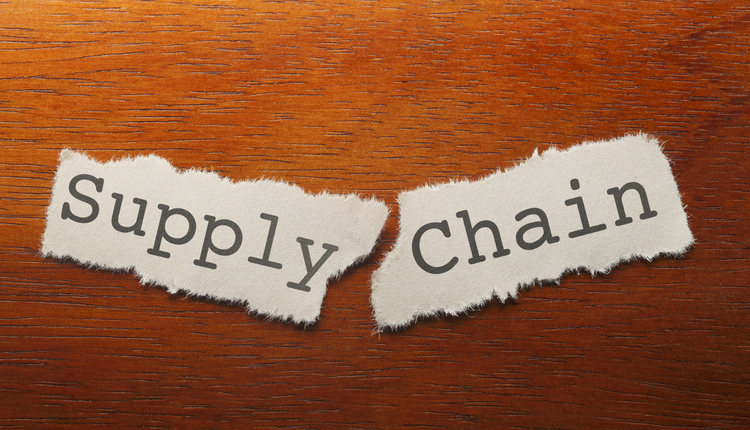In last issue’s column, I discussed recent economic results as well as poor earnings announcements from the two largest domestic parcel shippers, UPS and FedEx. Wall Street continues to fly high; however, stocks have pulled back a bit as the S&P 500 is just shy of 4.0% off of the 52 week high (based on the August 21, 2013 closing price). But while stocks in general are in record territory, both UPS and FedEx reported lackluster quarters and signaled of economic troubles ahead. One of the main areas of exposure continues to be International growth, which drives substantial volumes and profits for UPS and FedEx.
I also provided an update on the status of The Marketplace Fairness Act. This legislation provides a practical way for state, county, and local governments to collect sales tax for goods sold on the Internet. The legislation, which easily passed in the Senate in May 2013, continues to sit in the House. Many large and small businesses are opposed to the legislation and on August 21, executives from 11 companies – a cross-section of cataloguers within the B2C, B2B, and Order-Fulfillment space, went public with their concerns regarding the legislation. The American Catalog Mailers Association (ACMA), The Direct Marketers Association (DMA), and The Electronic Retailing Association (ERA) are also opposed to the legislation and would like to see the bill simplified by easing some of the administrative requirements required for collecting and auditing these taxes. One thing is certain – the bill is extremely controversial, and there’s a possibility the bill will not make it to the floor of the House for a vote. Many representatives are concerned their positions will alienate their core constituents. We’ll continue to monitor the situation for the remainder of the year - if it is passed it will have a big impact on shippers of all shapes and sizes.
The July retail sales report was released on August 15, and the data suggests that the US economic outlook for the remainder of 2013 may be dreary. This follows the UPS and FedEx forecasts – both companies see economic trends before many other companies since they are moving a big chunk of the gross domestic product through their networks. Both Wal-Mart and Macy’s recently announced slower than expected growth and communicated doubts that consumers will spend enough in closing out 2013 to lift the still-subpar US economy. The Wal-Mart announcement is particularly troubling as they account for nearly 10% of total nonautomotive spending in the US. They expect economic strains in the US and abroad to squeeze its shoppers for the remainder of 2013.
Concerns over Obamacare continue to weigh heavily on the economy. UPS recently announced they are dropping healthcare coverage for up to 15,000 employee’s spouses. UPS cited the rising costs of healthcare, combined with the costs associated with the Affordable Care Act. We’ll continue to monitor Obamacare developments for the remainder of 2013 as it also will have a huge impact on shippers and consumers.
Crude oil has also resurfaced as a major economic concern for shippers and consumers. Turmoil in Egypt, as well as many other Middle Eastern countries has driven the price of crude over $100 a barrel. Some economists are forecasting costs to rise as high as $120 a barrel by the end of 2013. Even though Egypt is not a huge producer of crude, the geographic locations of Egypt and The Suez Canal play a huge role in the worldwide oil markets.
It appears we’re still in a period of economic uncertainty as we close out the summer, with a variety of factors contributing to a slow recovery. We’ll continue to monitor new developments and keep you updated on trends that will impact parcel shippers and the cost of moving goods in next issue's Spend Perspectives!
I also provided an update on the status of The Marketplace Fairness Act. This legislation provides a practical way for state, county, and local governments to collect sales tax for goods sold on the Internet. The legislation, which easily passed in the Senate in May 2013, continues to sit in the House. Many large and small businesses are opposed to the legislation and on August 21, executives from 11 companies – a cross-section of cataloguers within the B2C, B2B, and Order-Fulfillment space, went public with their concerns regarding the legislation. The American Catalog Mailers Association (ACMA), The Direct Marketers Association (DMA), and The Electronic Retailing Association (ERA) are also opposed to the legislation and would like to see the bill simplified by easing some of the administrative requirements required for collecting and auditing these taxes. One thing is certain – the bill is extremely controversial, and there’s a possibility the bill will not make it to the floor of the House for a vote. Many representatives are concerned their positions will alienate their core constituents. We’ll continue to monitor the situation for the remainder of the year - if it is passed it will have a big impact on shippers of all shapes and sizes.
The July retail sales report was released on August 15, and the data suggests that the US economic outlook for the remainder of 2013 may be dreary. This follows the UPS and FedEx forecasts – both companies see economic trends before many other companies since they are moving a big chunk of the gross domestic product through their networks. Both Wal-Mart and Macy’s recently announced slower than expected growth and communicated doubts that consumers will spend enough in closing out 2013 to lift the still-subpar US economy. The Wal-Mart announcement is particularly troubling as they account for nearly 10% of total nonautomotive spending in the US. They expect economic strains in the US and abroad to squeeze its shoppers for the remainder of 2013.
Concerns over Obamacare continue to weigh heavily on the economy. UPS recently announced they are dropping healthcare coverage for up to 15,000 employee’s spouses. UPS cited the rising costs of healthcare, combined with the costs associated with the Affordable Care Act. We’ll continue to monitor Obamacare developments for the remainder of 2013 as it also will have a huge impact on shippers and consumers.
Crude oil has also resurfaced as a major economic concern for shippers and consumers. Turmoil in Egypt, as well as many other Middle Eastern countries has driven the price of crude over $100 a barrel. Some economists are forecasting costs to rise as high as $120 a barrel by the end of 2013. Even though Egypt is not a huge producer of crude, the geographic locations of Egypt and The Suez Canal play a huge role in the worldwide oil markets.
It appears we’re still in a period of economic uncertainty as we close out the summer, with a variety of factors contributing to a slow recovery. We’ll continue to monitor new developments and keep you updated on trends that will impact parcel shippers and the cost of moving goods in next issue's Spend Perspectives!











